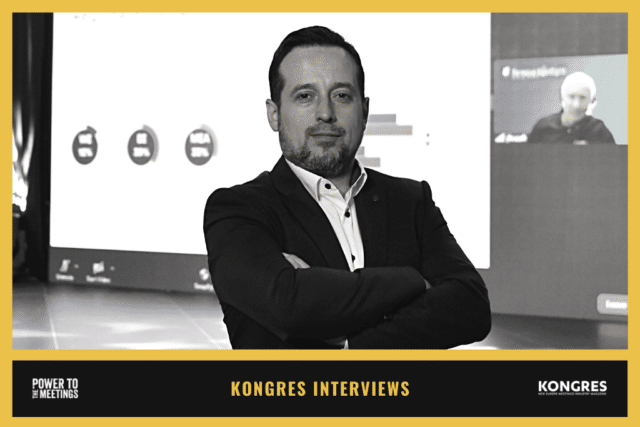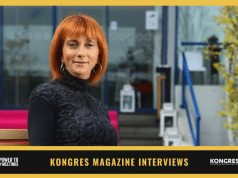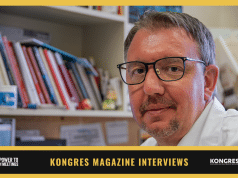“Standing still will produce a crisis that many will feel in the upcoming years”
Q: Is there anything that can still surprise you in the current situation? How have you reacted to the situation from a business and personal perspective?
The event industry is one of the few industries for which the ban was never uplifted. The industry was particularly affected and demanded more decisive decisions from all key stakeholders. Unfortunately, we will be the last industry to receive the final uplifting of all ban measures. The business climate caused by the pandemic caused the urge to look for survival opportunities, while the degree of the resourcefulness of an organisation was crucial.
Q: What are the wishes of your clients – do they wish live events to return, or is the scale in favour of digital events?
We all took online events as a necessary evil. Therefore, most of us have come to know the basic functions of the cameras on our laptops. Still, the desire for staying healthy prevails above all else. Online events are useful from several aspects. We even realised that we were able to solve many meetings and trips in a more favourable and faster way. Regardless of all the advantages, a live event has no competition, and there is not a single professional who is not looking forward to the return of live events.
Q: We cannot overlook the question regarding the future of the industry. Is the future of the industry bright? Do you personally believe it will come back stronger after the crisis?
The event industry depends on economic success, and I think there will be no obstacles to return to the old path of success. When we think about challenges, it is indisputable that they will be present in all segments. Retaining professional personnel, implementing new technologies, the return of budget items in sales and marketing plans, lower attendance and increasingly difficult travel decisions are the challenges that all event industry professionals will face.
Q: Can you give us a good practice case of organising events during the corona crisis?
Online platforms for organising fairs, b2b meetings and conference programs are a great tool that has helped to overcome the crisis situation. The IT sector responded well and reduced the damage that could have occurred from complete lockdown and the inability to promote the products and services of companies. Just imagine the damage if the closing of the border crisis had occurred 20 or 30 years ago.
Q: What is the best-case scenario for events in the second half of 2021? How will you ensure that events will be executed safely?
Unfortunately, the organisation of events depends on the assessment by crisis expert officials. Judging from discussions with experts and executives, we can conclude that the scale is certainly not in favour of events. Following the situation in China and other areas where vaccination has been successfully carried out, our hopes that the situation could improve during the summer are high.
Q: How effective were measures put in place by the government in your country? From the viewpoint of an event organiser, what did you expect?
In general, many governments were very disorganised and copied the actions of other governments and expert crisis bodies of neighbouring countries. The challenging health situation prevents governments from addressing the problems of the meetings industry, so there are relatively low expectations about the commitment to the problems we face. Restrictions on gatherings in open and closed spaces are the biggest impediments to serious discussions on the modalities of measures that would facilitate the organisation of events.
“Restrictions on gatherings in open and closed spaces are the biggest impediments to serious discussions on restarting events”
Q: How has the public opinion regarding events and event organisers changed during the corona crisis?
Given the level of problems faced by the general public and governments, many events, parties, conferences and fairs have been put on the sidelines. It seems understandable that the struggle for health and life has taken precedence over many activities in which individuals realise their additional pleasure and enjoyment. It is extremely important for all industries to return product and service presentations as well as education as a necessary tool for the development of companies and the community.
Q: It seems that the crisis is creating a gap between the creative and logistic part of the meetings industry. How do you see this situation?
The online event industry has further disrupted this difference. A lot of creativity and innovation is needed to overcome the new situation and in addition to the challenges between the many companies that took part in organising events, there was inevitably a gap between employees in companies as special knowledge and skills were highlighted. With great effort and investment in new knowledge, we managed to retain the number of employees. However, the change in work habits was extreme, and it is difficult to explain that this is a company’s new normal rhythm.
Q: During these times, what does your regional area represent to you? In this context, how does the slogan “think globally, act locally” apply?
Our current product bears the name of the region covered by the existing event. Immediately after the closing of borders and the start of online events, we removed the “barrier” and sent a message to the world. At the event we are currently working on, we have applications from several thousand participants from over 90 countries around the world. We acted and thought globally. We are surprised by the reaction of many world events that are waiting for the situation to pass. Indolence and standing still will produce a crisis that many will feel in the upcoming years.
Q: What do you see as your greatest achievement? What are you particularly proud of, and how would you describe your exit strategy in a few words?
I am proud of the team that found the energy to completely change the course and direction of the company’s work during a complete blockade of business and contacts with clients. After a year, we have completely new products and a new vision of the company. At the time of the pandemic one of the two existing products that we have been developing for over 15 years, have been joined by two completely new services that we believe could be the future of the company.
Q: One last question, which we ask all our colleagues – High Tech or High Touch?
Owners and managers of companies solving the constant challenge of company growth are in a constant dilemma regarding improving technology or skills and knowledge. In their experience, employee skills have been key to overcoming pandemic crises. Acquired knowledge, fast learning, adaptation to changes are the basis for a new product, the adaptation of existing services and further business development. Technology has its price, and it is possible to get more offers in the market for each of your ideas. Without lessening its importance, the human factor is still decisive.














